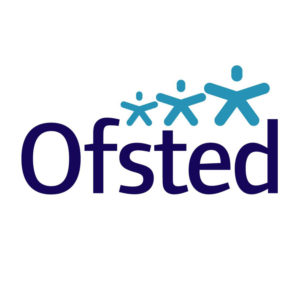Chapter Contents
Planned Placements
When a local authority contacts us about a child who is in need of a foster home, they will provide our Placements Team with information about the child’s personal circumstances and needs. The team will use this information to make a match with possible foster parents. We may decide that, given the child’s needs, we do not have a suitable family with a vacancy. If so, we will advise the local authority that we cannot help on this occasion.
If the team identifies you as a potential foster family, a placements officer will usually phone you to share information about the child and their needs. This will help you to consider whether you believe you can meet the child’s needs. The placements officer will also speak with your manager or supervising social worker to obtain their view on the suitability of this potential match.
If everyone is in agreement that this might be a suitable placement match, the placements team will send information about your family – including your profile and welcome book – to the child’s local authority. The local authority will be looking at details of several potential families and will decide which family they believe is best able to meet the child’s needs.
We will also consult with other fostered children who are members of your household, and their placing authority, to ensure they are in agreement with any new placement arrangement.
Once they have agreed a match, the Placements Team will put the local authority in contact with your manager for further discussions. This will include making arrangements for introductory meetings, and making plans to meet the child’s specific needs, e.g. special education, medical or support needs. Arrangements could include additional training for you or practical arrangements such as transport.
Emergency Placements
Not all placements can be planned as children are sometimes taken into care quickly, to remove them from a situation of danger or neglect. This can happen late at night. Our Out-of-Hours staff can make an emergency placement and will contact a family directly in this situation.
Children who need emergency placements may be frightened and distressed and will need sensitive care and comfort. You will have limited information about them when they arrive. These placements might only last for a few days, but some children remain for several weeks or months. They are subject to the same placement planning requirements as other placements and therefore lack of information should only be a temporary situation.
Bedrooms
ISP has a policy which states that, as a general rule, each child over the age of three will have their own bedroom:
- A birth child of the foster parents will not share a bedroom with a foster child.
- Fostered children should not share a bedroom with other fostered children, unless they are siblings.
- Children in care under the age of two years may share the same bedroom as their foster parents, if appropriate.
These general standards apply to all families who foster for ISP. There may be exceptions for specific children, following a risk assessment, and with the agreement of the placing authority.
Before approaching the child’s local authority to seek agreement for the sharing of a bedroom, we will take into account any potential for bullying, any history of abuse or abusive behaviour, the wishes of the children concerned and all other relevant facts. The final decision as to whether fostered children share a bedroom rests with ISP and the child’s local authority.
Placement Planning Meetings
Once a placement has been agreed, we will arrange a Placement Planning Meeting. The purpose of the meeting is for all the participants to provide and receive information so that you, the foster child, their parents, their social worker, and your supervising social worker have a clear understanding of the purpose and likely duration of the placement.
It is best for this meeting to take place in your home, as an important part of the meeting is for you and the young person to agree on the day to day living arrangements once the placement starts. The meeting will contribute to the child’s placement plan.
This meeting is also an appropriate opportunity to share your Family Safer Care Plan.
Placement Plans
The child’s Placement Plan is part of their Care Plan. It includes details about your role, how you will share day-to-day parenting tasks with the local authority and the child’s parents.
The Placement Plan will help you to understand the child’s likes, dislikes and routines. It will explain the child’s health, educational, emotional and behavioural needs and how these might affect the child day to day. It will include strategies for responding to these needs.
Ideally, the child’s local authority will complete the Placement Plan before the start of placement. When this is not possible, regulations state that it must be made within five working days of the start of placement.
As soon as we receive a copy of the Placement Plan, we will ensure that you have a copy. Where there is delay in receiving any elements of the child’s care plan, we will actively follow this up with the responsible authority.



